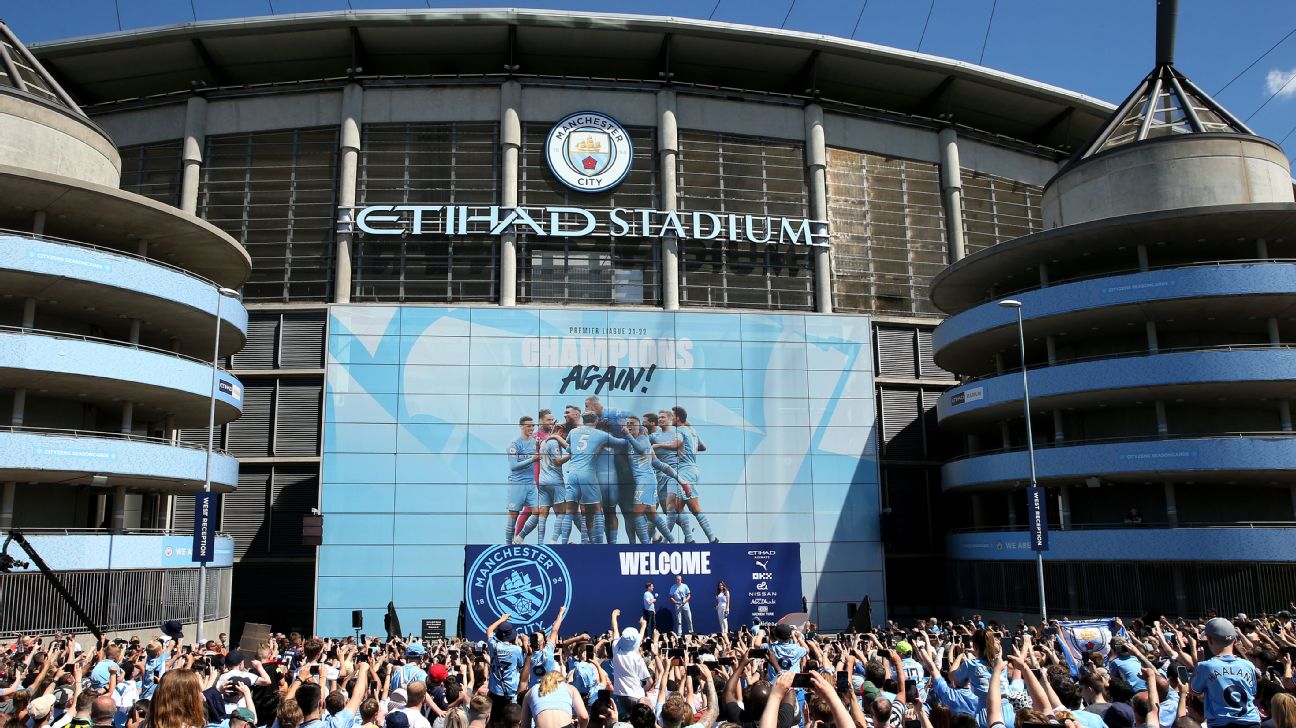MANCHESTER CITY'S ACQUISITION: A TWO-WAY INVESTMENT STRATEGY FOR FOOTBALL DEVELOPMENT IN AFRICA
International Sports Update Posted on 2024-06-04 06:32:06

by Salahudeen Mahbubat Kanyinsola
When Sheikh Mansour bin Zayed Al Nahyan took over Manchester City in 2008, little did everyone know it was the beginning of Manchester City's remarkable rise in world football. Between 1996 and 2003, City were stumbling between divisions, with a series of relegation and promotion defining that period. But in September 2008, real hope arrived at the club in the shape of the Qatari prince, who assumed ownership of the club, propelling them into one of the richest football teams overnight and setting them up for a winning side.
For starters, before Sheikh Mansour's acquisition of Manchester City, the English club was worth €1.32 billion which is a sharp contrast to their €1. 375 billion player value as of May 2024 and have gone ahead to secure a record of 17 trophies since 2016 including: 6 Premier League titles, 2 FA Cups, 4 EFL Cups, 2 FA Community Shields, 1 UEFA Champions League, 1 UEFA Super Cup, and 1 FIFA Club World Cup.
While many may trace City's miraculous success to the top quality of players, their astute management and tactical innovation under head coach Pep Guardiola, City's sustained success is all thanks to Sheikh Mansour's takeover. The ownership change from former Thai Prime Minister, Thaksin Shinawatra for a whopping $200 million brought substantial financial backing which allowed the club to undergo a significant transition in terms of player acquisition, player development, managerial appointment, infrastructural development and on-field success, making it a global football powerhouse.
In context, Africa is a hub of football talents, with many clubs in European topflight and American football colleges capitalizing on rising and enthusiastic African talents through traditional and digital scouting methods and fully-funded scholarships to acquire their signature. The consequence of such development is the loss of raw talents from African teams to top football teams across Europe or the Arabian peninsula. Notably, there is always a stark difference between football in Africa and Europe, with European clubs having an all-around edge in terms of infrastructure, salaries, player profiling and fan engagement, all of which serve as pull factors fueling young African players' aspirations for European clubs.
Mansour's take over sixteen years ago was the turning point City needed to transition from a mid-table mediocrity to a consistent Winner and dominant team in the modern era. The evolution of Manchester City underscores the transformative impact of financial backing in a football club, and perhaps, the solution to the present state of football in the African continent. Ostensibly, football clubs are an attractive asset class; African football investors may see African sports as a sustainable investment that yields results by fueling partnerships from sport companies and businesses and capitalizing on the pool of hungry talents. Drawing from the Pareto Principle which emphasizes 20% efforts and 80% result: player development, infrastructure, and managerial appointments is little compared to the mercurial rise in value, match attendance, partnership, sponsorship and wins (all of which serve as revenue streams) the team is bound to achieve once the necessary resources are in place.
Understandably, African sports investors may not have had as much resource as Sheikh Mansour when he assumed ownership of Man City but with the growing advancement in technology and football, there is a need for collaboration and partnership between private investors or private-government partnerships. The existence of partnerships between different bodies will give club acquisition, player development, and club value a better lift in Africa.
Search
Categories
Recent News
- The Myth, Challenges of an away game in the NPFL
- On a path to greatness: Stephen Perry and Kolawole Akeem
- AWCON: The Talentmine For Budding African Female Talents
- Five ways Branding helps Athletes Career
- MATCH DAY REVENUE: THE SUPPORTERS ROLE IN GENERATING FUNDS FOR A TEAM
- 10 Interesting Facts You Should Know About Fast-Rising African Female Footballer, Susan Ama Duah
- 10 Interesting Facts You Should Know About Fast-Rising African Female Footballer, Susan Ama Duah
- CAF SUPER LEAGUE